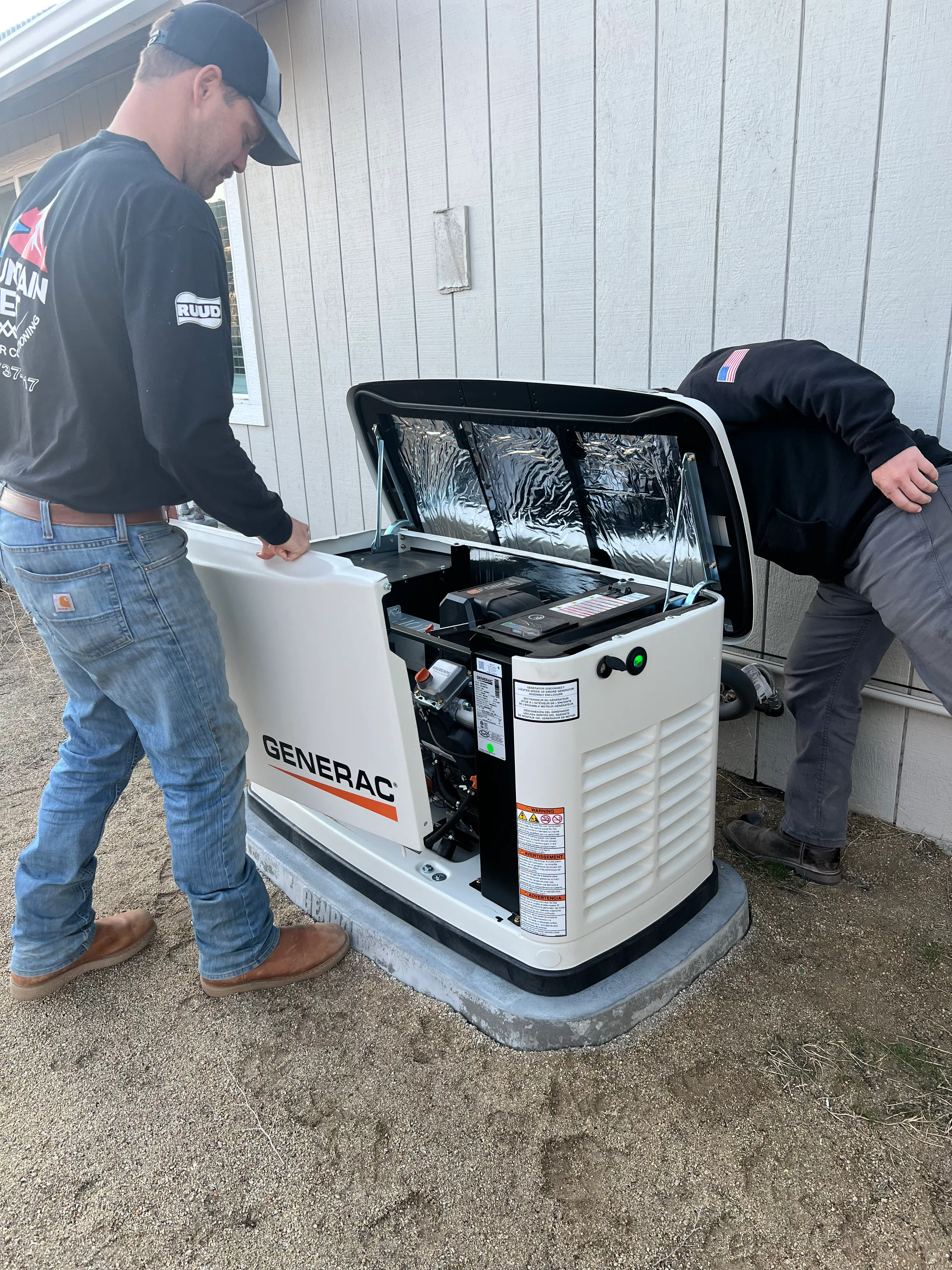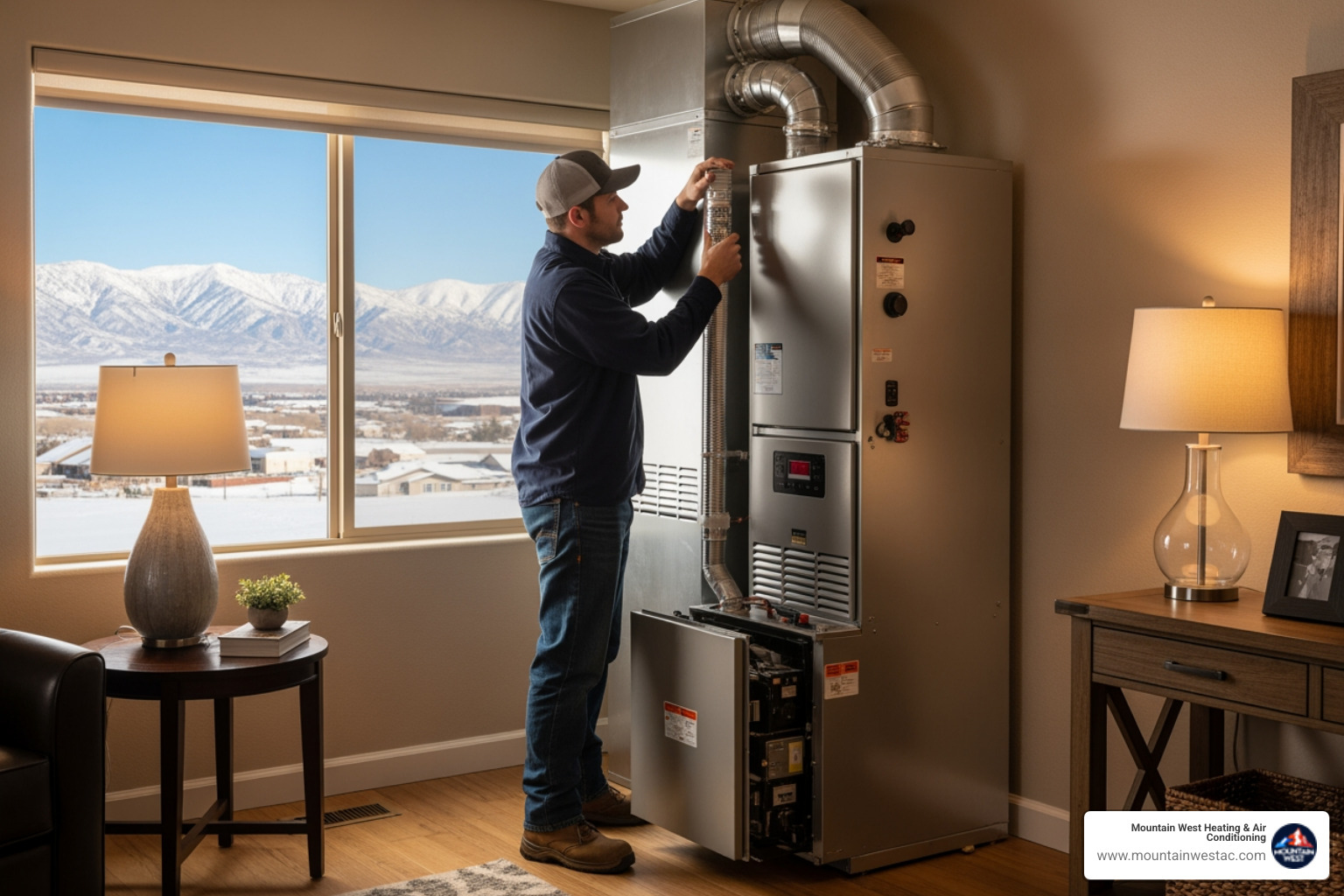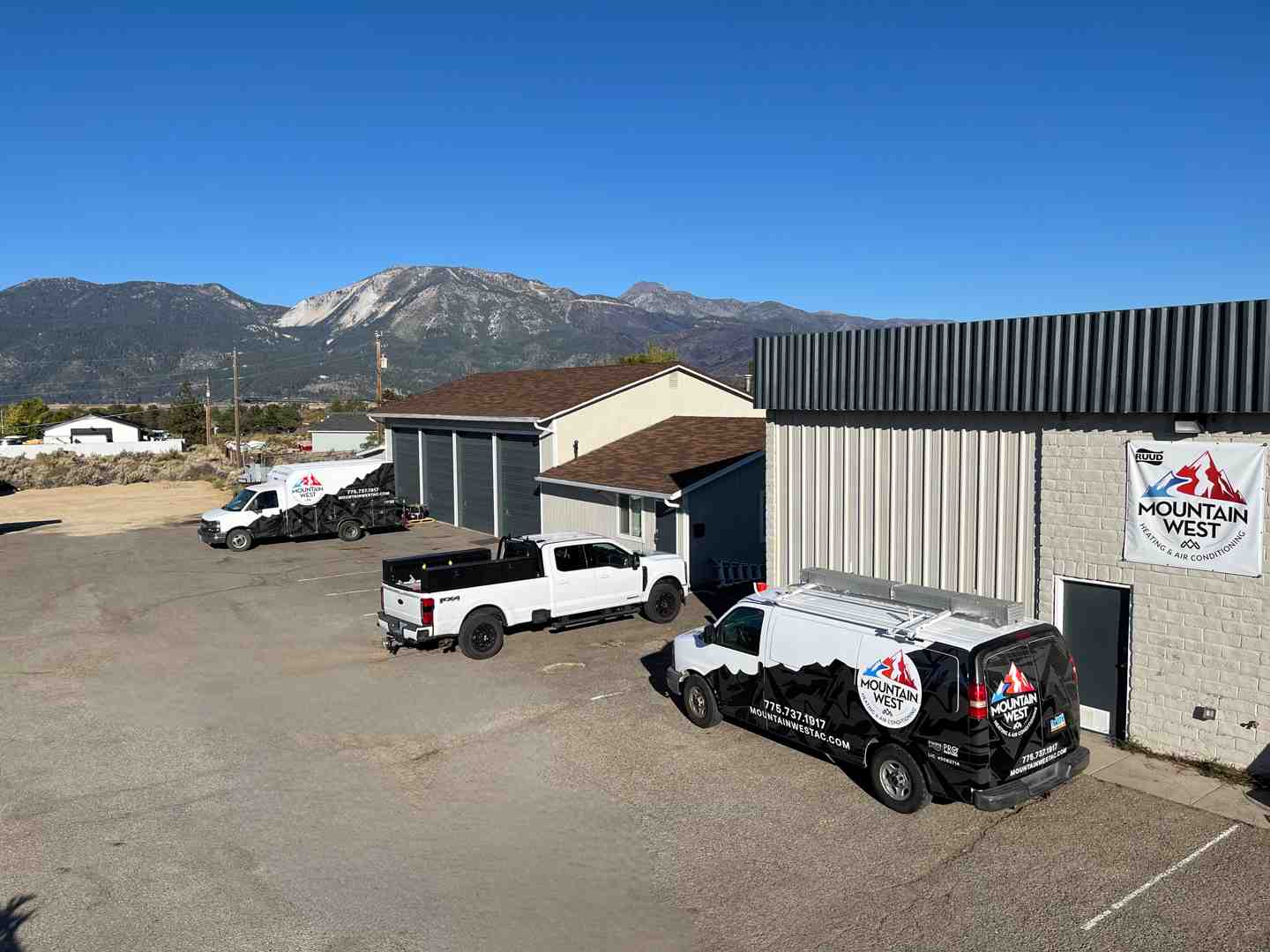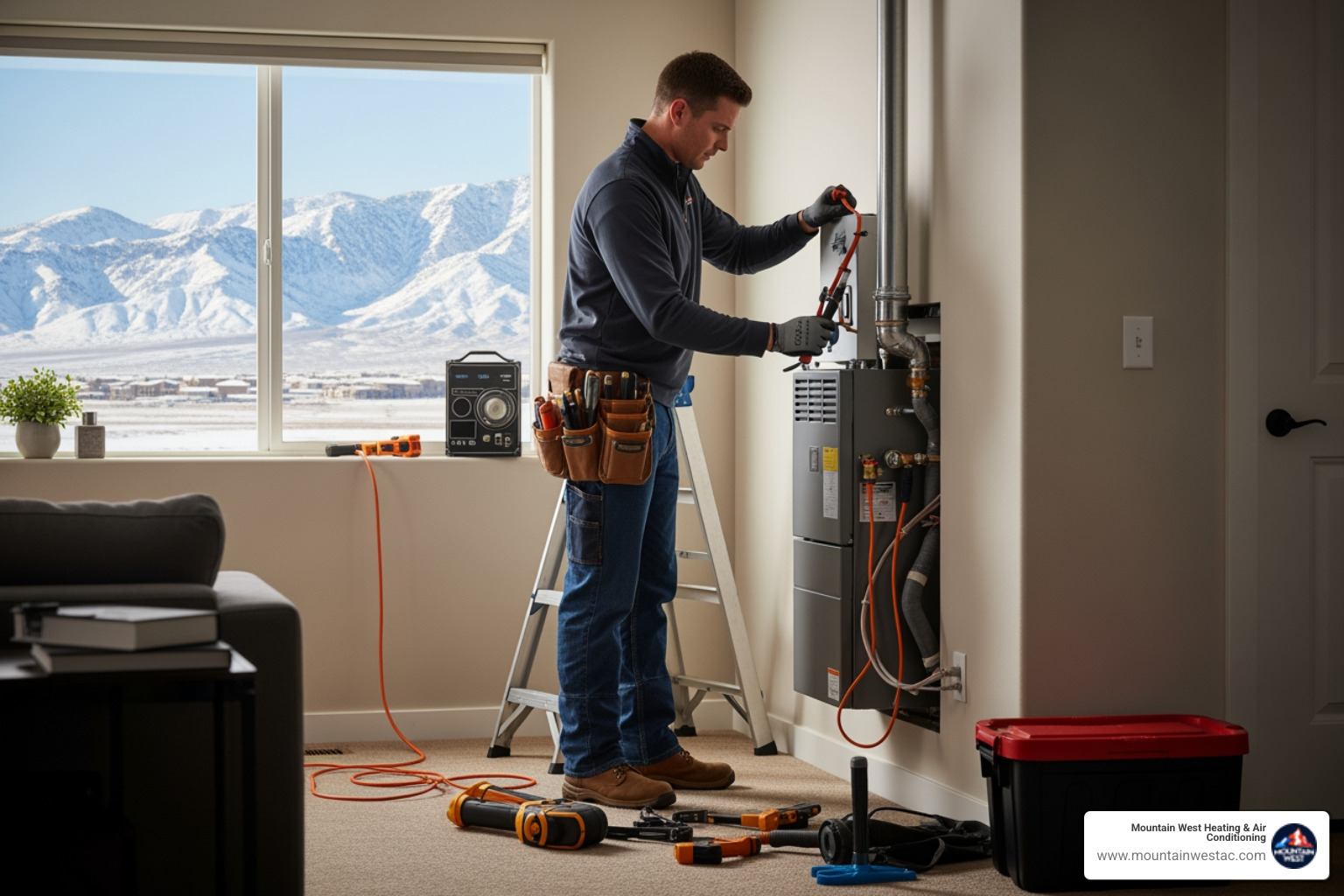AC units do more than just cool your home; they offer several important health and comfort benefits that many people don't realize. Air conditioners improve indoor air quality by filtering out pollutants, allergens, mold, and pests that can cause health problems. This is especially helpful for people with allergies or respiratory issues. AC systems also reduce humidity levels in your home, creating a less damp environment that discourages mold growth.
Beyond cleaner air, good air conditioning helps you sleep better and creates a quieter indoor environment by allowing windows to stay closed. With summer approaching, understanding these benefits helps you make the most of your cooling system while creating a healthier home environment.
Health and Comfort Benefits
Air conditioning offers more than just relief from hot weather. Modern AC systems provide significant advantages for your physical well-being and home comfort through multiple mechanisms.
Improved Air Quality
Air conditioners help clean the air you breathe by filtering out harmful particles. Most AC systems include filters that trap dust, pollen, and other airborne pollutants that would otherwise circulate through your home. Higher-quality filters can capture even smaller particles, including some bacteria. This filtration process creates cleaner indoor air, which is especially important in urban areas or during seasons with high pollen counts.
Regular maintenance of your AC system ensures these air quality benefits continue. We recommend changing filters every 1-3 months, depending on usage and environmental factors. Some newer AC models even include advanced purification technologies that can remove up to 99% of airborne contaminants.
Humidity Control and Its Importance
AC systems naturally remove excess moisture from the air while cooling. This dehumidifying function creates a more comfortable living environment and prevents several problems associated with high humidity.
When humidity levels stay between 30-50%, you'll notice:
- Reduced mold and mildew growth
- Fewer musty odors in your home
- Decreased pest problems
- Better preservation of wood furniture and floors
Proper humidity levels also make your home feel cooler at the same temperature. This means you can set your thermostat slightly higher without sacrificing comfort, potentially saving on energy costs.
Alleviating Allergies and Respiratory Issues
For allergy sufferers and those with respiratory conditions, air conditioning can provide significant relief. By reducing airborne allergens and maintaining optimal humidity, AC systems create a healthier breathing environment. According to the Centers for Disease Control, good air conditioning helps prevent heat-related illnesses and can reduce asthma attack triggers.
The filtering action removes common irritants like:
- Pollen
- Pet dander
- Dust mites
- Some airborne bacteria
Air-conditioned spaces also allow you to keep windows closed during high-pollen seasons, further protecting those with sensitivities. Many people report better sleep and fewer respiratory symptoms in properly air-conditioned environments.
Energy Efficiency and Cost Savings
Modern air conditioning systems offer remarkable energy efficiency that can significantly reduce your utility expenses. The right AC unit, properly placed and equipped with smart controls, creates the perfect balance of comfort and cost management.
How Energy-Efficient AC Units Save Money
Energy-efficient air conditioners can reduce your home's total energy usage by 20% to 50% compared to older models. This translates directly to lower monthly utility bills. The efficiency of an AC unit is measured by its SEER (Seasonal Energy Efficiency Ratio) rating; the higher the number, the more efficient the system.
Modern AC systems deliver equivalent cooling with up to 30% less energy consumption. When shopping for a new unit, look for ENERGY STAR certified models, which meet strict efficiency guidelines set by the EPA. Nearly half of a typical home's energy costs go toward heating and cooling. By upgrading to an efficient system, you can see significant savings over the unit's lifetime that often outweigh the higher initial purchase price.
Strategic AC Placement and Size Considerations
The proper placement and sizing of your AC unit dramatically affects its efficiency. An oversized unit will cycle on and off too frequently, wasting energy and causing temperature fluctuations. An undersized unit will run constantly, driving up energy costs while struggling to cool your space.
For optimal efficiency, place outdoor units in shaded areas away from direct sunlight. Ensure there's adequate clearance around the unit for proper airflow. Indoor vents should be unobstructed by furniture or curtains. Proper insulation around ducts prevents cool air from escaping before reaching your living spaces.
Ensure you obtain professional sizing calculations based on your home's square footage, layout, window placement, and local climate conditions. This guarantees you’ll get the most efficient system for your needs.
The Advantages of Programmable Thermostats
Programmable thermostats offer precise control over your home's temperature, reducing energy consumption by 10-15% annually. These devices allow you to create customized cooling schedules that align with your daily routine. You can program higher temperatures when you're away and cooler temperatures when you're home. Some smart thermostats even learn your preferences over time and adjust automatically.
Many modern thermostats connect to WiFi, allowing remote temperature adjustments through smartphone apps. This means you can turn down the AC from anywhere if your plans change unexpectedly. Additional features like maintenance reminders, filter change alerts, and energy usage reports help you track efficiency and prevent problems before they affect performance. Some utilities even offer rebates for installing programmable thermostats, further improving affordability.
Installation and Maintenance
Proper installation and regular maintenance are crucial for getting the most from your AC system. These practices not only extend your unit's lifespan but also ensure it runs efficiently with minimal noise.
Ease of AC Installation
Professional installation ensures your system works efficiently from day one, and getting expert help for central systems avoids performance issues and potential safety hazards. However, different systems have different needs.
- Central AC systems are more complex and typically need professional installation. They require ductwork throughout your home and proper sizing to match your space.
- Window AC units are simpler to install, and many homeowners can set them up without professional help. You'll need to secure the unit properly and ensure it tilts slightly outside for proper drainage.
- Portable air conditioners are the easiest option. They only need a window opening for the exhaust hose. No permanent modifications to your home are required, making them ideal for renters.
Routine Maintenance for Longevity
- Change or clean filters every 1-3 months, depending on usage and environment. Dirty filters force your system to work harder and use more energy.
- Schedule annual professional tune-ups to identify potential problems before they become expensive repairs. Technicians will check refrigerant levels, clean coils, and inspect electrical components.
- Keep outdoor units clear of debris like leaves and branches, ensuring at least two feet of clearance around the unit. This improves airflow and efficiency.
- Clean your condensate drain regularly to prevent clogs that could cause water damage or system shutdown. A simple mixture of bleach and water can keep the line clear.
Understanding Noise Levels and Comfort
Noise levels vary significantly between AC types. Central AC systems typically operate at 25-40 decibels inside your home. The compressor outside might reach 70-75 decibels but is usually placed away from living spaces.
Window units produce about 50-70 decibels of noise, similar to normal conversation or background music. Their location in your living space makes the noise more noticeable than central systems. Portable air conditioners are often the loudest option at 55-70 decibels. Their compressors are inside your living space rather than outdoors.
Regular maintenance helps keep noise levels down. Loose parts, dirty components, and aging equipment all contribute to increased noise. Remember to lubricate moving parts yearly and tighten loose panels that might rattle.
Get in touch to discuss your air-conditioning needs and potential upgrades.









